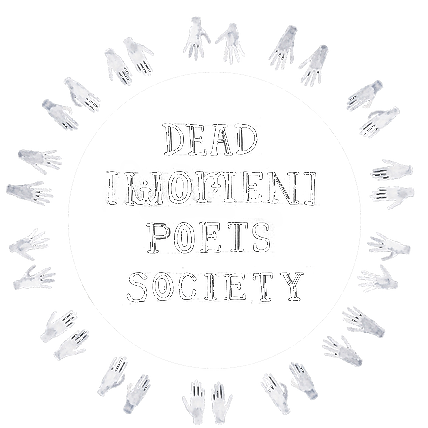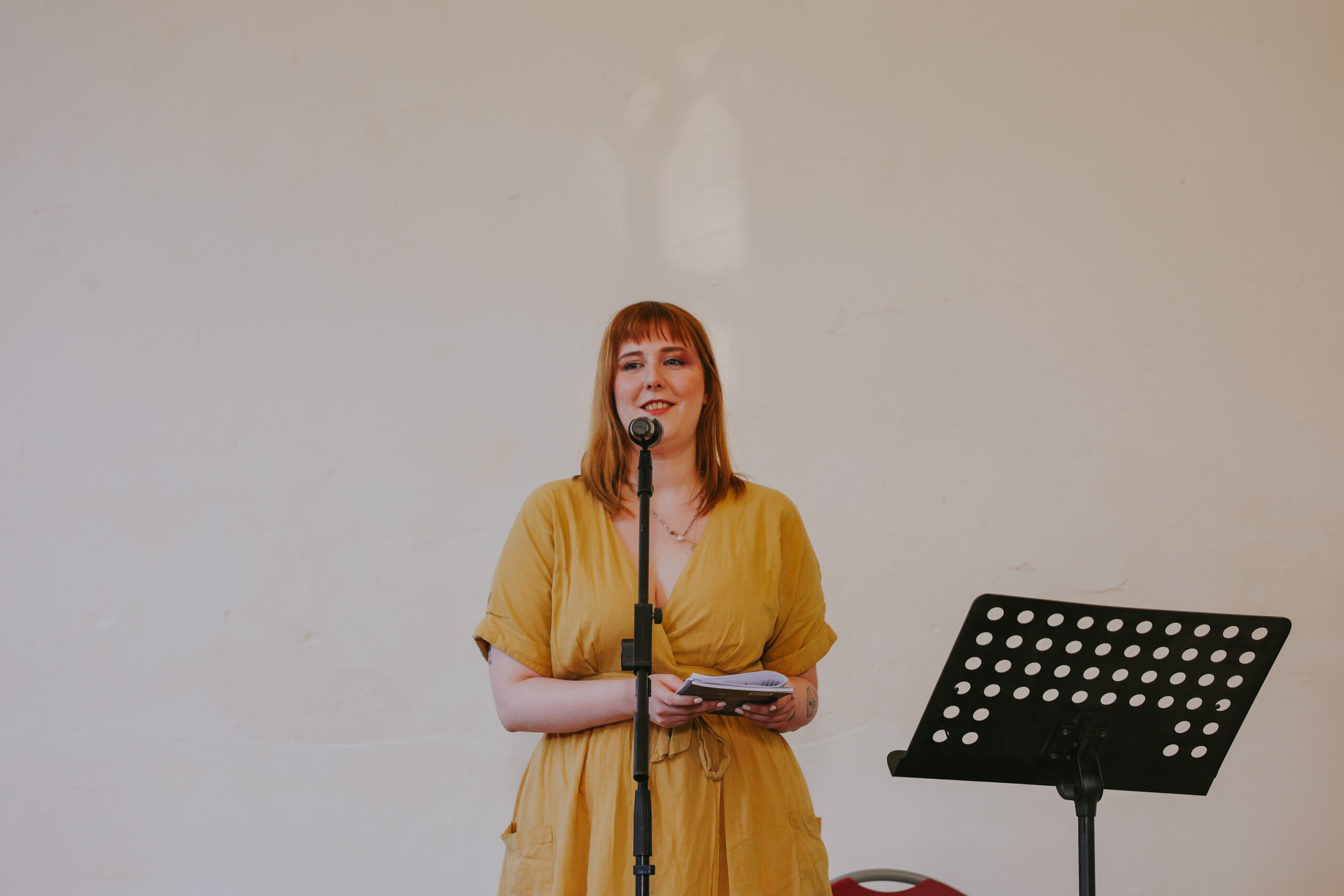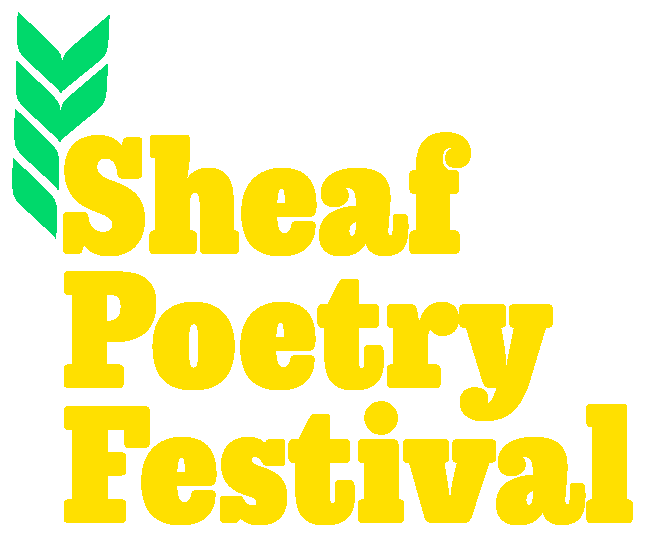Charlotte Shevchenko Knight resurrects Lesia Ukrainka
for Dead [Women] Poets Society

In 1871, Larysa Kosach is born in Novohrad-Volynskyi, a Ukrainian town annexed by the Russian Empire (contemporarily known by its original name, Zviahel). She is born at a time in which to speak Ukrainian is dangerous, to write in Ukrainian even more so.
Her mother, poet Olha Drahomanova-Kosach, home-schools Larysa, ensuring that the girl learns to speak Ukrainian, and is not subject to schools which enforce Russian language education.
Larysa, through the encouragement of her family, takes great interest in Ukrainian folk songs and history. By the age of 13, she publishes her first poem in a magazine, written in Ukrainian, under the pen-name Lesia Ukrainka, meaning ‘Ukrainian woman’.
The decision to embrace her Ukrainian womanhood propels Lesia into a revolutionary career of poetry and playwriting, which after her death in 1913, will be heavily censored under Soviet rule, and even later celebrated as a symbol of Ukrainian identity, following the dissolution of the Soviet Union and the declaration of Ukraine’s independence.

Today, Ukrainka continues to be a revered icon in the face of Russian hostility, her poetry graffitied onto walls which, in 2014, are dismantled into bricks and thrown at Russian-affiliated police within Kyiv’s Maidan Square, the site of a great protest which will be only the beginning of Ukraine’s ongoing resistance that we see today. Her poem ‘Hope’ is considered a symbol of this resistance. You can find a translation by Percival Cundy on page 57 here, which begins:
No more can I call liberty my own,
To me there’s naught remains but hope alone.
Another poem of Ukrainka’s, ‘Tears Over Ukraine’ (on the same page as the link above) feels so immediate and contemporary. Ignoring its archaisms, the urgent sentiment itself could easily be mistaken for belonging to the trials of a more modern Ukrainian poet:
Ukraine! bitter tears over thee do I weep.
Alas! of what use is such grief unto thee?
What can I avail thee by sorrow so deep?
Alas! thou hast small help from me.
Despite her cultural significance within Ukraine, Lesia Ukrainka remains practically unheard of within the Western canon. This is something I would like to change. With limited instances of her works being translated into English, I’m hoping this seance is comprehensive enough to bring Lesia back to life.
Lesia Ukrainka’s writings were intrinsically feminist, evidenced in her retellings of myths, such as her revision of Don Juan, which re-centres the narrative of the myth onto its forgotten, downtrodden female character, Donna Anna. Interestingly, and to Ukrainka’s credit, her revisionism predates the feminist retellings which we see within the Western canon today, such as the works of Margaret Atwood, H.D., or Sylvia Plath.
I’m very excited to be able to share with you an excerpt of one of Ukrainka’s feminist revisions, this being Nina Murray’s recent translation of Cassandra, which has kindly been provided by Harvard University’s Ukrainian Research Institute, for the purposes of this seance. The full translation will be published by their press in 2024.
Ukrainka’s Cassandra is a retelling of the siege of Troy, from the perspective of Cassandra, the prophet who is cursed to never be believed. In her essay Cassandra Among the Creeps, Rebecca Solnit highlights that Cassandra embodies the casual dismissal of women’s credibility, under which we still labour. You can find an excerpt for free online here, translated by Nina Murray. Helenus blames Cassandra for Troy’s downfall:
And this
I know too: if we had put
our faith in Helen’s hand,
or Polyxena’s, or any other woman’s
but not yours — we would have
won the day.
This blame-placing which is explored throughout Ukrainka’s Cassandra has a two-fold subtext. From a feminist perspective, Ukrainka is illustrating how women experience blaming and shaming language constantly (such as the common response of ‘Well, what was she wearing?’). Our existences are policed by blame.
But equally today, I witness this same blaming narrative and language used towards Ukrainians, oftentimes by Western outsiders, who want the war to end. And what they mean by ending the war is why don’t you just give up. This approach I believe to be influenced by Russia’s great ability to spread disinformation and shift the cultural blame onto the victim state. Ukraine is not the first nation to face this blaming narrative.
The best means of combatting Russian disinformation is to listen to Ukrainian voices, to familiarise ourselves with Ukraine’s rich literary history. It becomes evident why we must resist this blame, and this invasion — a sentiment I’m certain Ukrainka would align herself with.
Returning toUkrainka’s work, I’d like to talk about her best known play in verse: Forest Song, which evaded Soviet censure and was taught in Ukrainian schools under the guise of its rural setting and folklore elements merely being a ‘primitive love story’. Ukrainian academic Sasha Dovzyhk makes the argument that Forest Song is a further feminist revision of Ukrainka’s, this time of the myth of Eurydice and Orpheus, where gender roles are reversed.
In Forest Song, Mavka the forest nymph falls in love with Lukash, a peasant boy with a musical gift. Lukash both enchants and later betrays Mavka, who seeks solace and forgetfulness in the Underworld. Unlike Orpheus, Lukash does not seek Mavka amongst the ghosts, and for this he is punished, by being turned into a wolf. Mavka, upon hearing Lukash’s pained howls, breaks free from hell to free both herself and her lover, thereby reversing the traditional gender roles of the myth.
I’d like to share a section of Forest Song, the moment when Mavka escapes hell by her own power, which is quoted here (translated by Sasha Dovzhyk):
Like subterranean fire
My ardent pity split the granite vault,
And I broke out again into the light.
The magic word gave life to my dumb lips —
I wrought a miracle … I only knew
I was not destined to forgetfulness.
This resonates with me so strongly, not just as a woman, but as a Ukrainian. To speak Ukrainian is a kind of magic, a linguistic resurrection. Lesia knew this in 1911. More than a hundred years on, more and more Ukrainians who do not speak the Ukrainian language are discovering this magic for themselves, reclaiming their tongue in the face of centuries of Russian oppression. In this respect, as in many, Ukrainka was ahead of her time.
Outside of her published plays and poems, Ukrainka carried out extensive correspondences with other writers. What strikes me when diving into the archive of her letters was how clever and careful she had to remain in what she wrote privately, for fear of her letters being intercepted.
Her ‘friendship’ with Olha Kobylianska is of particular note. Dovzhyk comments that Ukrainka’s letters to Kobylianska reveal ‘a search for a new radical model of female intimacy’. You can read some of these letters, newly translated by Daisy Gibbons, here. The first one is addressed ‘To someone beloved, dear and glorious!’ She goes on to suggest that ‘someone’ will be upset, thinking that their letter has been lost in the post, when really it’s the slow postal service to blame. She uses ‘someone’ for both the addressee and herself: ‘Someone doesn’t want their letters going missing — someone doesn’t want this at all!’
The use of ‘someone’ in Ukrainka’s letters likely appear in order to obscure who is being discussed, an interesting method of avoiding possible persecution. Beyond this however, the language itself brings forth an awkward poetics. The author of the letter in this instance is desperate for the recipient’s approval, yet cannot bring herself to say their name, finding herself in the midst of a linguistic dance just to finish each sentence.
Of all of Ukrainka’s impact, her feminist retellings, her revolutionary use of the Ukrainian language, what stays with me, personally, is that ‘someone’, who would go on to spend her last years in various sanatoriums outside of Ukraine, suffering with tuberculosis, yet would continue on with her poetry, her correspondences and her longing, all of these almost interchangeable, until the very end.
In honour of Ukrainka, and as part of this wonderful commission by the Dead Women Poets’ Society, I’ve written a poem about her final, often undiscussed years, and her yearning as a someone, for a someone, be that someone a person or a place. It’s called ‘last resorts’:
last resorts
in the sanatorium
in the isolated forest
someone is thinking
of someone the blue
medicinal air
touches someone
reminding her
of healing mountains
the power
of positive thinking
someone she left
behind
could not keep
within her rattling
consumption
exiled on the brink
of history
someone will be
a great significance
her face the face
of currency
& bricks thrown
at riots her name
the name
for the only road
left in desertion
none of this matters
to someone
someone
will keep thinking
of someone
sighing into her grave
the rot of longing
living on
in her lungs

Charlotte Shevchenko Knight is a British-Ukrainian poet with an MA in Creative & Life Writing from Goldsmiths University. She was the winner of the New Poets Prize (2021) with her pamphlet Ways of Healing. Shevchenko Knight’s work centres on womanhood and Ukrainian history, and can be read in The Poetry Review, Poetry Birmingham, and bath magg, amongst others
